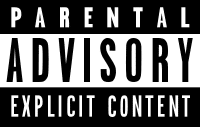In his book Outsiders, published in 1963, Becker describes the processes by which certain behaviors are criminalized. So-called moral entrepreneurs attempt to eliminate an evil they perceive by creating and enforcing norms. The groups that continue to practice the newly criminalized behaviour thus become outsiders. Through these processes, self-fulfilling prophecies become active, according to Becker.
Main proponent
Theory
Becker describes in his theory how behaviour is criminalized. Important for him is the basic assumption that crime is a product of attributions. For Becker, this process is selective at two different levels:
- Which behaviors are criminalized is selective,
- and existing norms are selectively enforced.
This means that not all breaches of the norm are punished in the same way. For someone to become a deviator, his behaviour must violate an existing norm and this norm must also be enforced (see Table 1). Becker is particularly interested in the question of how to determine which behaviors are pursued and which are not.
Table 1: Types of deviant behaviour
| Obedient Behavior | Rule-breaking Behavior | |
|---|---|---|
| perceived as deviant | falsely accused | pure deviant |
| not perceived as deviant | conforming | secret deviant |
(Becker 1963: 20)
In “Outsiders”, Becker examines marijuana users and the attempts of moral entrepreneurs to criminalize this consumption.
For Becker, labeling a certain activity as deviant has two different functions. There is a justification for moral entrepreneurs to take action against this behaviour and to condemn it morally. For the outsiders, however, the label has the function of creating identity. An identification with the attribution “deviant” takes place, whereby secondary deviance arises (for the concept of secondary deviance see here). Becker describes this process as a self-fulfilling prophecy.
Probably the most concise summary of the process of criminalizing social deviators is given by Becker himself. The much quoted saying is:
The deviant is one to whom that label has successfully been applied; deviant behavior is behavior that people so label.
(Becker, 1963: 9)
Implication for criminal policy
In his 1963 study on outsiders, Becker takes a sociological and criminological perspective on deviance, which was later named and further developed by criminologists such as Edwin Lemert in the USA and Fritz Sack in Germany as a labelling approach. The perspective of the criminalization of social groups clearly distinguishes itself from the 1963 predominant idea of a pathological type of criminal, whose behavior is explained, for example, by his belonging to a deviant subculture (see: Subculture Theory according to Cohen). Becker is thus considered (alongside Matza) to be one of the pioneers of a paradigm shift in criminology and a pioneer of critical criminology.
Critical appreciation & relevance
Although Howard S. Becker does not regard himself as a criminologist, but as a sociologist and music ethnologist, his book “Outsiders” is still regarded today as one of the most influential and frequently quoted works of deviant sociology and criminology. One criticism of the work is that by shifting the perspective to criminalization (instead of the etiological view of the origin of criminal behavior) a romanticization and trivialization of crimes would take place. Becker addresses this critique in the essay “Whose Side Are We On?” (1967).
Literature
- Becker, Howard S. (1963): Outsiders : studies in the sociology of deviance. New York [u.a.]: Free Press of Glencoe [u.a.].
- Becker, Howard S. (1967): Whose Side Are We On? In: Social Problems, 14(3), S. 239-247.
Further Information
Video
Example of application

- Chastagner, Claude (1999) The Parents’ Music Resource Center: From Information to Censorship. In: Popular Music. Band 18, Nr. 2, S. 179–192. Online available under: https://halshs.archives-ouvertes.fr/halshs-00176147/document